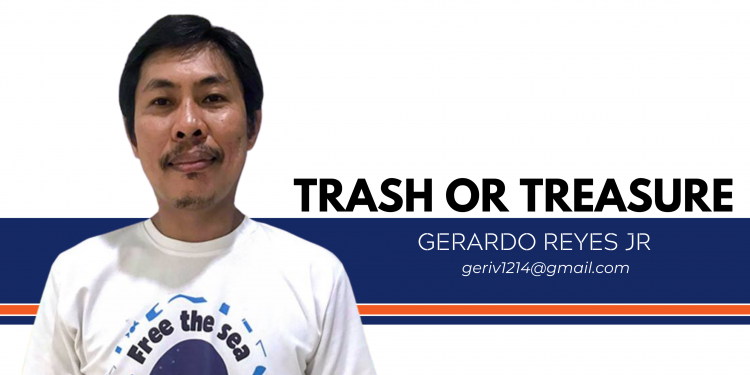Much has been said about the consequences of plastic pollution and mismanaged solid wastes affecting fishery resources, the quality of oceans, the conditions of the natural environment in our coastal areas, tourism, and livelihood. But what does the problem look like in communities flooded by plastic waste?
In our country, solid waste is generally not properly sorted, collected, and treated due to lack of working facilities, financial constraints, and the perfunctory compliance to the Republic Act 9003 also known as the Ecological Solid Waste Management Act of 2000.
Today, more than 35,580 tons of solid wastes are generated every day in the country. On average, each person produces about 0.5 kg and 0.3 kg of solid wastes every day in both urban and rural areas, respectively.
Because cities have bigger populations, proper management of their solid wastes from households, commercial, industrial, and other establishments seems to be an endless challenge not only for solid wastes managers but to the community and the general public as well.
There is a need for a grassroots movement or a strong community organization that should go beyond the information and education campaign (IEC). They should initiate campaigns, initiatives, and planning on waste management at the local level. They should own the campaign.
A community implementation of its local waste management system should start with effective waste collection. With the effective waste collection in communities, half the battle is already won.
The first step in waste management is usually solid waste segregation at source and segregated collection by the barangay, where trash is collected from the households and brought to the Materials Recovery Facility (MRF) or similar facility within the barangay. If not, solid wastes will be collected by the municipal/city level collectors that bring them to the sanitary landfill or any final disposal facilities of the locality.
It’s a good thing that in Puerto Princesa City, a local project is now ongoing that will help informal wastes pickers and solid wastes management in general.
A local-based project known as Eco-Kolek, conceptualized by the Project Zacchaeus Marketing Cooperative (PZMC) led by Mr. John Vincent Gastanes will help uplift the status of the informal wastes pickers or mangangalakal in Puerto Princesa City.
Some refer to them as “Eco-Warriors” while other barangays within the city call them as Eco-Aide or SWaM Man denoting them with Solid Waste Management (SWM).
They have already established partnerships with the Department of Science and Technology (DOST), the City Government of Puerto Princesa through the Office of the City ENRO, Technical Education and Skills Development Authority (TESDA), and as well as other relevant agencies and offices.
Gastanes said that the project is part of the grant from the United States Agency for International Development (USAID) under the Clean Cities and Blue Ocean program. They started piloting 60 informal wastes pickers in Barangay Bancao-Bancao that organized themselves as Samahan ng Mangangalakal ng Jacana (SMJ). He said that they target within two years’ time, they will be able to employ and train the project beneficiaries with different workshops and training and eventually make the project sustainable.
Included in their upcoming activities will be the SMART CITY approach in solid wastes management specifically on the collection of recyclable wastes segregated solid wastes in specially-designated wastes bins with bar codes. The collection, inventory, and waste recovery of these resources will be facilitated by mobile applications developed locally.
As defined, Smart City is a technologically modern urban area that uses different types of electronic methods, voice activation methods, and sensors to collect specific data Information gained from that data are used to manage assets, resources, and services efficiently; in return, that data is used to improve the operations across the city.
Eco-Kolek is a brilliant initiative conceptualized by a local startup company composed of a group of young men and women in Palawan.
